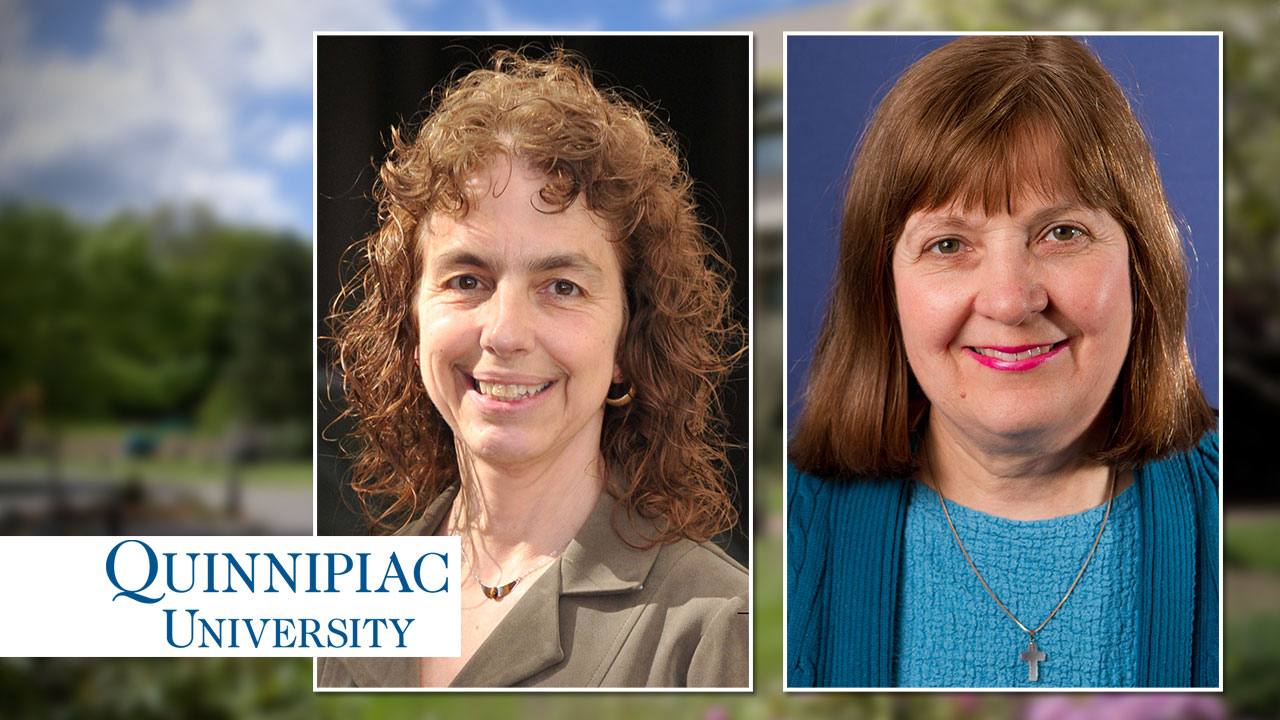Cynthia Barrere (left), chair of faculty development and professor at the Quinnipiac University School of Nursing, and Mary Helming (right), professor in the Quinnipiac University School of Nursing.
The American Holistic Nurses Credentialing Corporation (AHNCC) has again endorsed the Quinnipiac University’s School of Nursing’s undergraduate and graduate programs.
The Quinnipiac School of Nursing is one of 12 nursing schools with holistically-endorsed programs, and only the second school with endorsed DNP programs.
“Students in our undergraduate and graduate programs learn holistic nursing is a way of life in which the nurse engages in genuine caring, mindful living and ethical practice,” said Cynthia Barrere, chair of faculty development and professor of nursing who is a board-certified advanced holistic nurse.
The programs prepare students with the knowledge, skills and attitudes to provide holistic, patient-centered care for diverse individuals, families and populations across the lifespan. Students also are introduced to a variety of integrative health practices, which combine traditional western medicine and nursing with complementary and alternative therapies.
The students are taught to value healing the body, mind and spirit while also considering the patient’s environment, family and culture. They also learn that nurses are instruments of healing who facilitate patients’ rights to make informed decisions based on their beliefs and values.
“The doctor of nursing practice students graduating from the endorsed program will be adult-gerontology and family nurse practitioners,” said Mary Helming, a professor of nursing, who is also a board-certified advanced holistic nurse. “It is especially important for nurse practitioners to understand the safe use of herbs and dietary supplements that many patients use because these may act as natural medicines with drug interactions and side effects just as regular prescription pharmaceuticals do.”
Graduates from the Quinnipiac nursing programs have the added benefits of an expedited application to become certified holistic nurses, Helming said. The usual requirements – a reflective essay, 48 hours of continuing education in holistic nursing and one year of nurse practitioner or holistic nursing practice – are waived. Quinnipiac graduates only need to pass a quantitative test to become certified.
“The School of Nursing faculty believes an essential aspect of integrating holism into the curriculum is providing classroom, lab, simulation and clinical experiences that foster the students’ understanding of what whole-person caring is,” Barrere said. “They blend both eastern and western approaches in nursing practice to provide students with a solid foundation in caring and healing practice. They implement the school’s mission to teach nursing in a manner consistent with the American Holistic Nurses Association’s philosophy and core values.”
